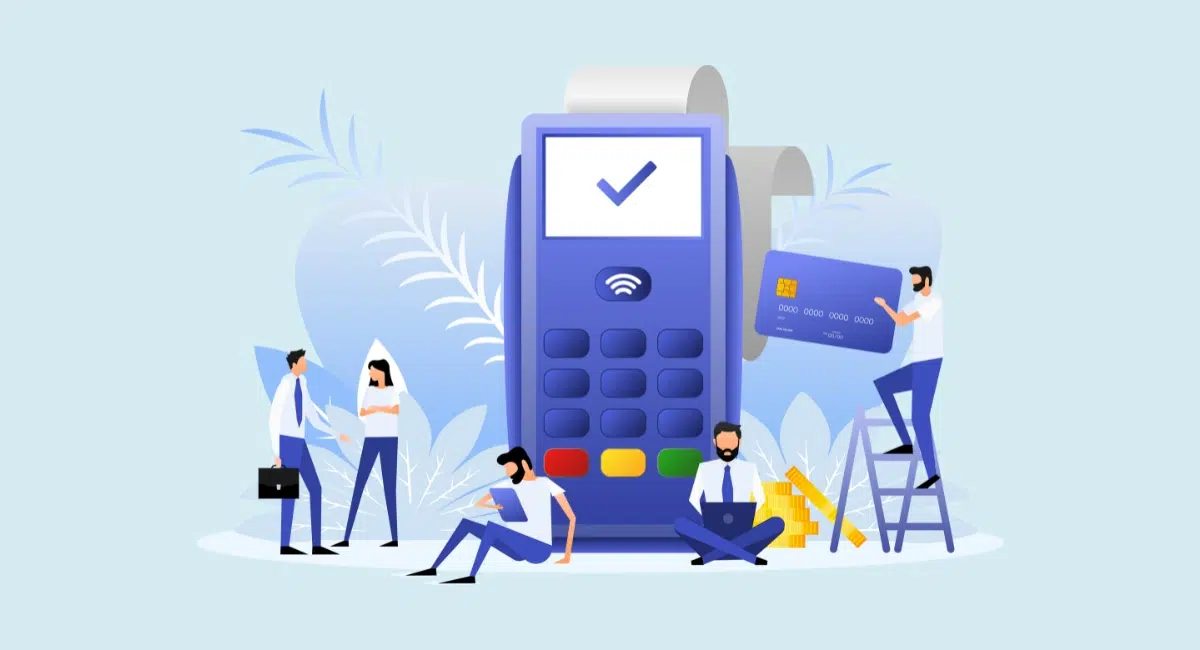Tempting as it is, choosing a “fee-free” EFTPOS machine can have its downsides as well as upsides.
Zero-cost EFTPOS refers to card machines that let merchants pass on the card transaction fee to customers as a surcharge, to avoid paying it themselves.
In many countries, card transactions are regarded as an essential cost of doing business. In Australia, surcharging has managed to prevail to an extent that consumers are used to seeing a charge for using a debit or credit card.
To be clear, card transactions always cost money due to the technology and security mechanisms involved in card processing. This is the cost of safe payments.
But should your business stomach the cost of transactions, or your customers?
Types of surcharging
Payment providers can make it sound like there really are no costs involved in a “zero EFTPOS fees” contract, so you always have to look closely at how their surcharge scheme works. Let’s have a look at some different EFTPOS solutions with surcharging.
Manual fee customisation and on/off switch
Most eligible EFTPOS machines have a surcharge setting that can be customised and switched on and off manually. This allows you to make exceptions for customers who refuse to pay it, or you can just use it during certain periods.
Automatic surcharge calculations
Other (or the same) terminals can automatically calculate the correct charge for each transaction so the merchant doesn’t have to worry about breaking the law by overcharging.
Scheduled surcharging at weekends and holidays
Another way to automate surcharging is to have it automatically switched on during weekends and public holidays. Square has this setting for its merchants to help them offset the higher wages they have to pay staff during those times.
With or without a monthly fee
Card machines from Tyro and the big banks have surcharging features alongside a monthly fee for EFTPOS rental. So do Zeller and Square without the monthly, fixed fees incurred by the others providers.
“Fee-free” rental with conditions attached
Some merchant service providers advertise “zero fee” EFTPOS rental contracts with surcharging, but the monthly fee is only eliminated if the business processes enough card transactions. We’re thinking of Smartpay’s Zero Cost EFTPOS and PayNuts’ Pay Nothing plans that – as well as eliminating transaction fees through surcharges – remove the monthly EFTPOS rental fee for businesses processing over $10k a month in card payments.
Another catch (apart from the monthly minimum sales requirement) is that they add their own commission to the automatically calculated surcharges that cardholders pay.
Passing on fees can have benefits
The obvious main benefit of surcharging is the lack of transaction fees for the merchant. If every customer pays the card processing fee applied to their transaction, the merchant only pays for the EFTPOS machine and other charges associated with it.
Small businesses in need of predictable costs may also prefer the application of surcharges, since transaction charges can vary quite a bit depending on the type of card being used.
For example, eftpos debit cards tend to have a fixed fee while Visa and Mastercard may have a percentage rate that varies according to whether it’s a consumer or business card, credit or debit card, domestic- or foreign-issued.
For some businesses, getting an EFTPOS terminal in the first place may not be worth the cost if it means a high upfront price, lock-in contract or fixed monthly fees. A zero-cost plan could enable you to accept cards at all, if you wouldn’t have been able to otherwise.
Your customers may not like it
In spite of the benefits for the merchant, customers may not like getting surcharged.
Since the pandemic, consumers have become more used to card payments and don’t want to get penalised with a surcharge for just trying to use a card. Then you have some people who don’t carry cash, so paying by card is the only option for them.
The fact is cash costs money to accept too, when you consider the time it takes to cash up, banking fees and the security risk of storing money on premises.
If a customer doesn’t want to – or can’t – pay a surcharge, you run the risk of losing that sale entirely. The person might say they’ll go out to get cash, then never return. Or they’ll simply get annoyed and go elsewhere to buy the items.
Even though it costs a small fee to accept cards in an EFTPOS machine, you could argue that the cost of a lost customer is greater as you lose that sale completely.
Your obligations if you go for it
If you decide to go for a zero-cost EFTPOS solution, there are certain rules businesses have to follow in Australia:
- Merchants cannot charge more than the actual transaction cost.
- This ‘excessive card surcharge ban’ applies to eftpos, Visa, Mastercard and domestic American Express cards, though you’re allowed to add surcharges to any card payment.
- A surcharge can be a variable or fixed rate (specific rules apply).
Merchants are sent an annual statement covering their average transaction fees, so that they can view their true costs and adjust rates if setting a surcharge manually. Some EFTPOS terminals auto-apply the correct surcharge so you don’t have to.
Businesses are not allowed to set one rate that’s an average across all types of cards – such as 1.5% if processing fees range between 1%-2%.
If using one fixed rate, you have to apply the lowest fee across your accepted cards for all card transactions, i.e. 1% if that’s the lowest card processing fee. This way, you never overcharge customers.




